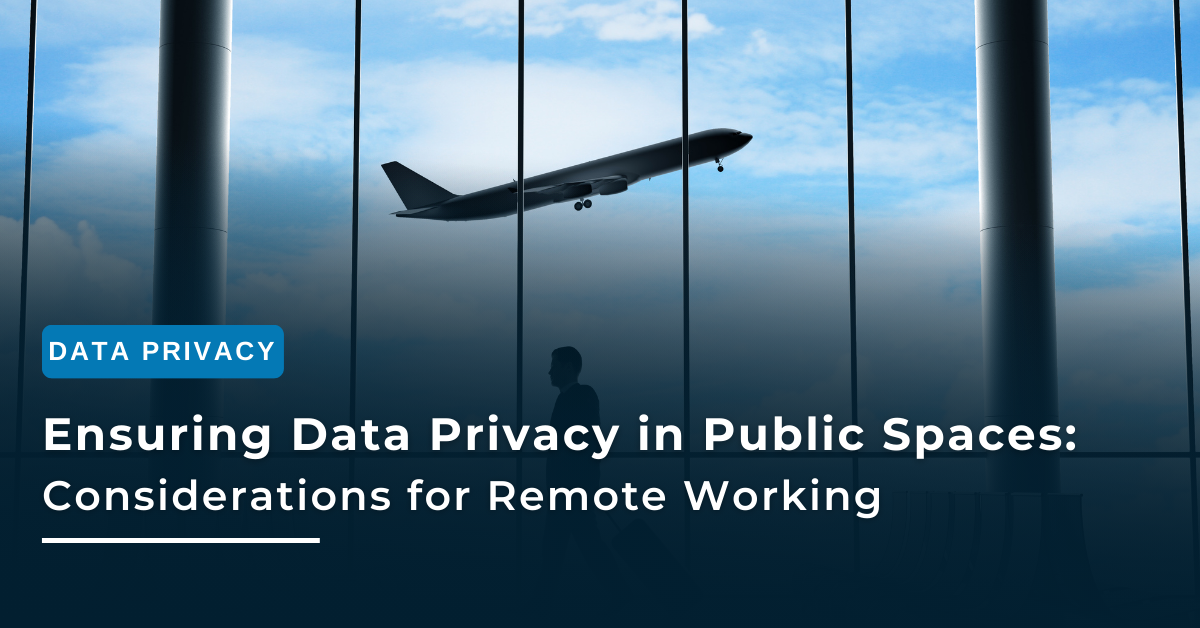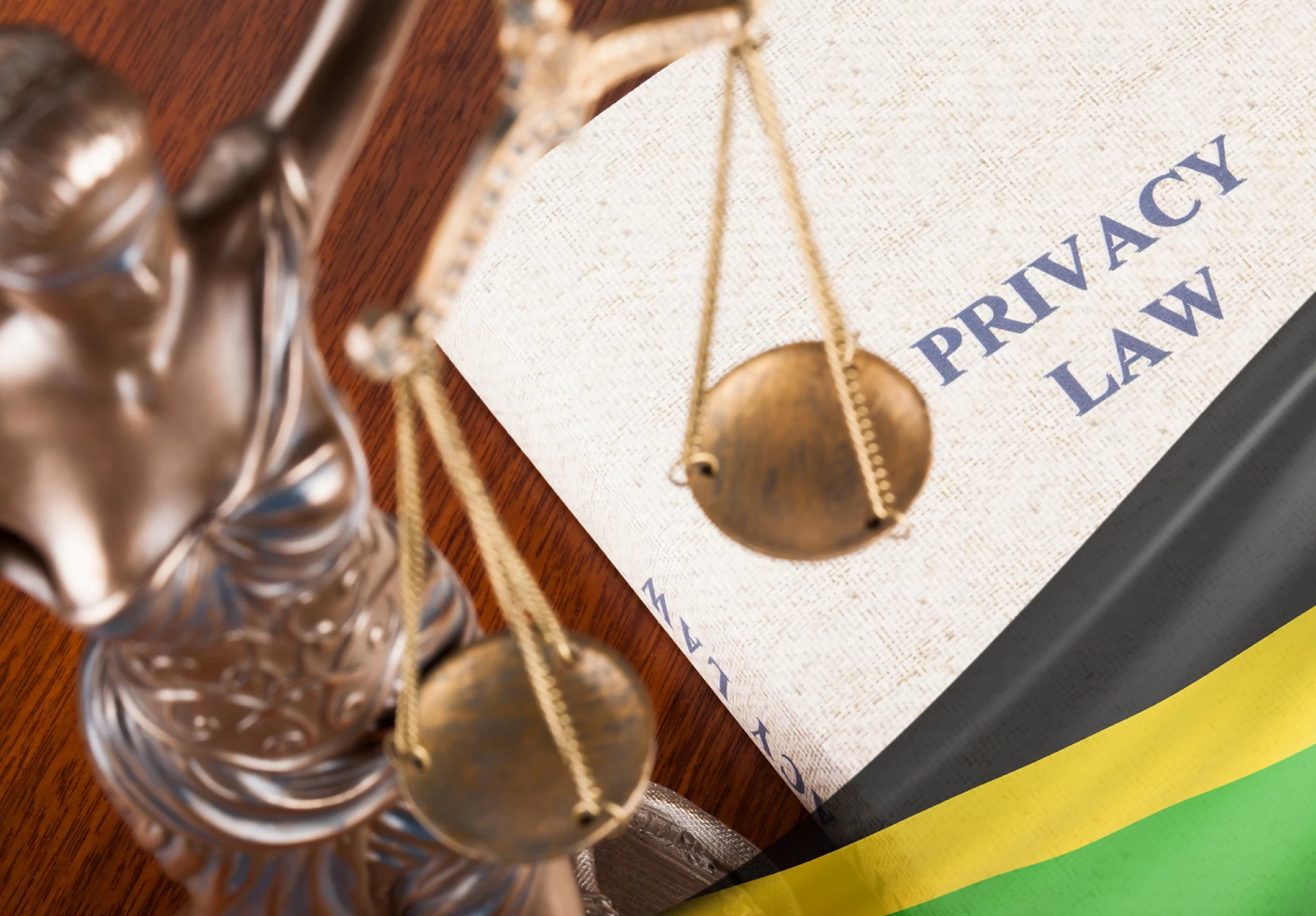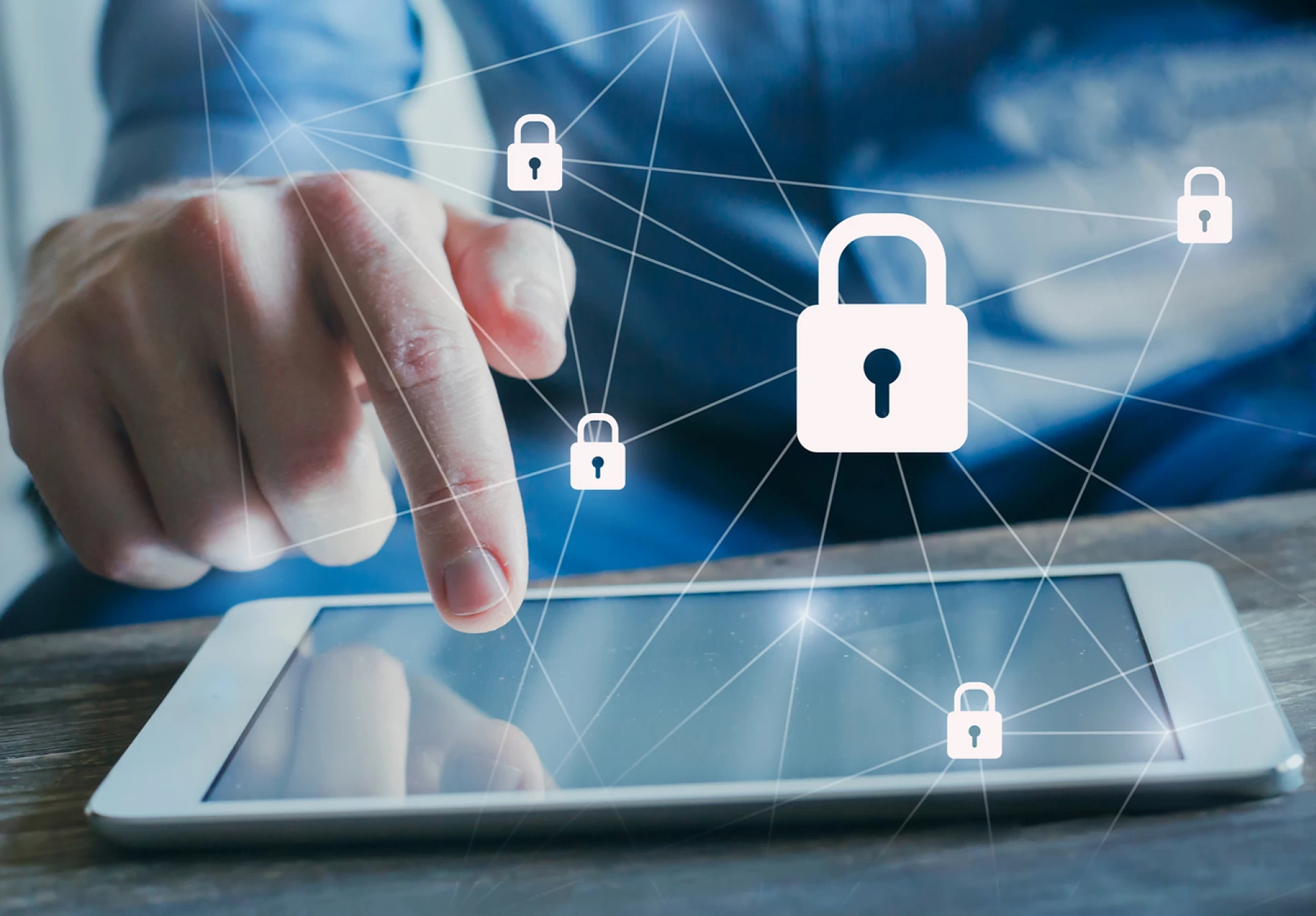Remote working and work-from-anywhere models have become commonplace in today’s professional landscape. From cosy cafes and serene parks to bustling airports and co-working spaces, professionals now have the flexibility to work from virtually any location and at any time. However, this newfound freedom comes with significant risks, particularly concerning data privacy. Often, the excitement of working in picturesque locales and being far removed from familiar faces overshadows the critical need to safeguard personal and sensitive information in accordance with applicable data privacy legislations. This article delves into the importance of data privacy while working in public spaces and offers strategies to mitigate potential risks.
While convenient and inspiring, public spaces are fraught with data privacy challenges. There is the need to have internet connectivity while working remotely, and the solution is often to connect to the unsecured Wi-Fi Network that is available in that public space. However, Public Wi-Fi networks, such as those lobbies, airports, restaurants and hotels, are notorious for their lack of adequate and robust security. Cybercriminals can easily intercept data transmitted over these networks, leading to potential data breaches. There is also the issue of physical security threats. Working in public places increases the risk of unauthorised individuals viewing or stealing sensitive information. Shoulder surfing, where someone peers over your shoulder to see what you’re working on, is a common occurrence while working in public. In addition to that, public spaces are also more prone to theft. Losing a device means potentially exposing all the data stored on it, especially if it is not adequately protected. And finally, there is the unavoidable risk of eavesdropping – curious observers can easily overhear our conversations in public spaces. Discussing sensitive information in such environments can lead to unintended data leaks.

Some employees may think it’s okay to unintentionally expose personal data while working on a plane, assuming the stranger sitting next to them will never come across this information again. That kind of reductionist and dismissive thinking is actually harmful given that the internet, and social media in particular, has made it possible to reach anyone. This practice is particularly harmful because identity theft is a major threat. Data leaks typically contain everything from social security numbers, an individual’s home address, date of birth to banking information, which is classified as personal information under the Barbados Data Protection Act. Once a criminal has these details, they can engage in all types of fraud under the data subject’s name, thereby ruining the individual’s credit and causing them unexpected legal issues.
Data privacy legislations such as the General Data Protection Regulations (GDPR), Bermuda’s Personal Information Protection Act (PIPA), the Jamaica Data Protection Act (JDPA) and The Cayman Islands Data Protection Act (DPA) do not actually care about how the breach or leak happens. The fines and consequences are the same irrespective of whether it was a malicious actor who gained unauthorised access to personal data or simply a case of an employee being careless. Unfortunately, a large number of infractions are a result of user behaviour, and this underscores the point that human beings tend to be the weakest link in the chain of protection. What is also true is that data breaches cannot just be patched up changing a few passwords. The impact of a data breach can have lasting repercussions on an organisation’s reputation and finances.
To mitigate these risks, organisations must look critically at their remote working policy to identify guidance gaps and encourage their employees to adopt stringent data privacy practices. Organisations must establish clear data privacy policies for remote work, including guidelines for using public Wi-Fi, handling sensitive information, and securing devices. At a minimum, it must be insisted that staff use secure connections while working remotely. The use of a Virtual Private Network (VPN) when connecting to public Wi-Fi should also be a policy directive. A VPN encrypts the user’s internet traffic, making it difficult for hackers to intercept personal data. Another technical control that is recommended as best practice is the use of Multi-factor Authentication (MFA) on all accounts. This adds an additional layer of security by requiring a two or more forms of verification, such as a unique code, in addition to the user’s password. On the issue of passwords, complex passwords and biometric authentication like fingerprint or facial recognition should be used where possible to secure the devices and accounts.
Not all controls are technical. The use of privacy screens on devices to prevent shoulder surfing can go a long way for individuals who must work on personal and sensitive personal data in public. These filters narrow the viewing angle, making it difficult for others to see what’s on your screen. In addition, professionals must be mindful of their surroundings and avoid discussing confidential matters in public. If necessary, it is recommended that individuals move to a more private location when discussing matters that involve personal and sensitive data or use code names and minimal information in verbal discussions. While in public, Always keep an eye on devices and, if possible, use a cable lock to secure laptops. Additionally, ensure that devices are set to lock automatically after a short period of inactivity.
The freedom to work from anywhere is a remarkable advancement in the modern workplace. However, this flexibility must be balanced with a strong commitment to data privacy. It is important that organisations regularly educate employees about the risks of working in public spaces and the best practices for protecting personal data as stipulated by law. By understanding the risks and adopting robust security practices, professionals can enjoy the benefits of remote work without compromising personal and sensitive information. Both individuals and organisations must prioritise data privacy to navigate the ever-evolving landscape of hybrid work securely.
Conclusion
Whether working from a bustling café, a serene park, or a busy airport, staying vigilant and proactive about data privacy is crucial. Equip yourself and your team with the knowledge needed to protect sensitive information from potential threats.
Ready to take the next step? Discover our comprehensive data privacy training courses designed to empower you with practical strategies and best practices. Don’t let data breaches compromise your professional integrity and organisational reputation.
Learn more about our data privacy training courses today and become a champion of data protection in the minds of your customers. Click here to get started and ensure your data is protected wherever you go!









